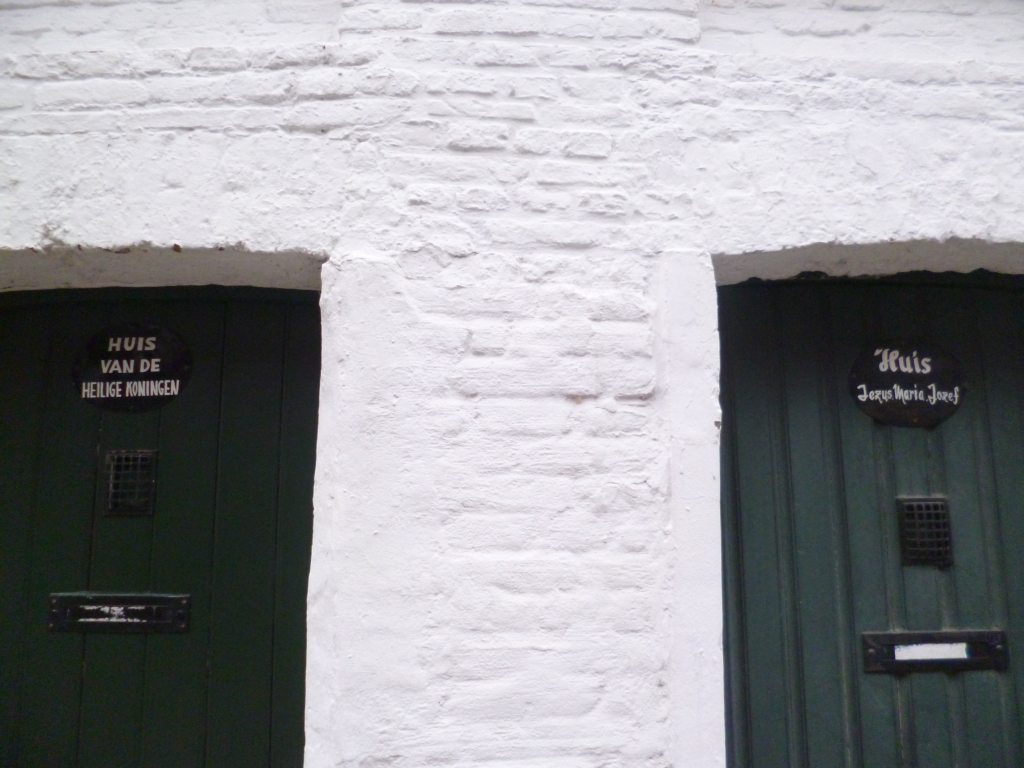Ich freue mich
Ich freue mich, daß ich geboren bin
zu Morgendämmerung und Abendrot;
ich sage Dank, daß ich erkoren bin
zu nächtlichem Gesang und Mittagslob.
Ich freue mich, daß durch den Vogelruf
das Paradies in unser Schweigen dringt
und oft aus einem alterslosen Buch
ein Sinn in unsre schweren Augen springt.
Ich schaue auf und staune jeden Tag,
daß mich der Himmelsherr mit Namen rief,
noch eh’ es Engel oder Erde gab,
noch eh’ ich still im Mutterleibe schlief.
Ich freue mich, daß durch das Angesicht
des einen Menschen Gott den andern liebt,
wie Sonnenlicht durch bunte Fenster bricht.
Ich freue mich, daß es die Freude gibt.
Christina Egan ©2021

a kind of convent, in Ghent (Klein Begijnhof). Photograph: Christina Egan ©2018.
Written upon the passing of a good friend who had been a nun for 40 years.
Also written for her on the topic of joy through faith and prayer: Die vierte Frucht.



